Archie Bongiovanni is a comics artist and illustrator who focuses on making work that’s gay and good. They’re the cocreator of the award-winning A Quick and Easy Guide To They/Them Pronouns and the creator of Grease Bats, a serialized comic about two queer BFFs navigating dating and late-stage capitalism. Bongiovanni’s the author of History Comics: Stonewall, and their work has appeared in The New Yorker, the Nib, Vice, and Autostraddle. They live in Minneapolis, Minnesota.
I had the opportunity to interview Archie, which you can read below.
First of all, welcome to Geeks OUT. Could you tell us a little about yourself?
Hi! My name is Archie Bongiovanni, I’m a cartoonist living in Minneapolis. I make comics that are gay and good. My books include (but are not limited to) A Quick And Easy Guide To They/Them Pronouns, Grease Bats, History Comics: The Stonewall Riots. I’ve been published in The New Yorker, The NIB (r.i.p.), and Autostraddle. I also make queer merch, zines and more which can be found in my shop.
What can you tell us about your latest graphic novel, Mimosa? Where did the inspiration for this story come from?
Mimosa is about four queer BFFs in their mid and late thirties as they navigate growing older without a heteronormative script! I was inspired by getting older myself and realizing that my thirties don’t look at all like I expected. I was taught growing up that you’d reach adulthood by landing a steady job, having a retirement account, buying a house, raising a family, etc etc. Instead, I found me and my fellow pals in their thirties with roommates, multiple jobs, and families that look very different from the iconic straight family two-parent household. I wanted to draw a bunch of friends balancing all these aspects while also trying to keep their friendships intact.
How did you find yourself getting into storytelling, particularly comics/graphic novels? What drew you to the medium?
I’ve ALWAYS loved comics. I have a high school diary entry where I write about wanting to be a comic artist. I love the way the brain works when filling in the blanks between images and words. The text can say one thing but the character’s expression can read differently and I think that’s where the magic is. I adore facial expressions and find comic characters able to showcase complex multilayered emotions with just a few lines and when it lands, it feels magical! I was never fully satisfied with writing, I love the pacing that panels allow in a story. So far my comics are all slice-of-life because I find the daily aspects of our lives incredibly interesting and complicated.
For those curious about the process behind a graphic novel, how would you describe the process?
There’s not a single way to create a graphic novel, but for me, I started with just a concept. I wanted to draw about a group of friends in their thirties because I wanted to draw characters that grew and aged with me. I then focused on the individual characters and developed them deeply. I think a lot about what the characters would want to say out loud but can’t, what they can’t quite admit to themselves. That’s where the juicy parts of the story lie! From there I wrote an outline and pitched it to my editor who I met briefly at a comic convention. I got some feedback and changed the outline and once it was accepted, I wrote the script. Scripting is the hardest part for me. The script can read as bland but once it’s in an image, it can shine with life, but it needs to be written to be critiqued and edited. Thumbnailing, penciling and inking flows a lot smoother! After it’s done, there’s a lot of waiting and behind-the-scene details to hammer out (cover designs, book designs, book copy, etc) that are both exciting and tedious at the same time!
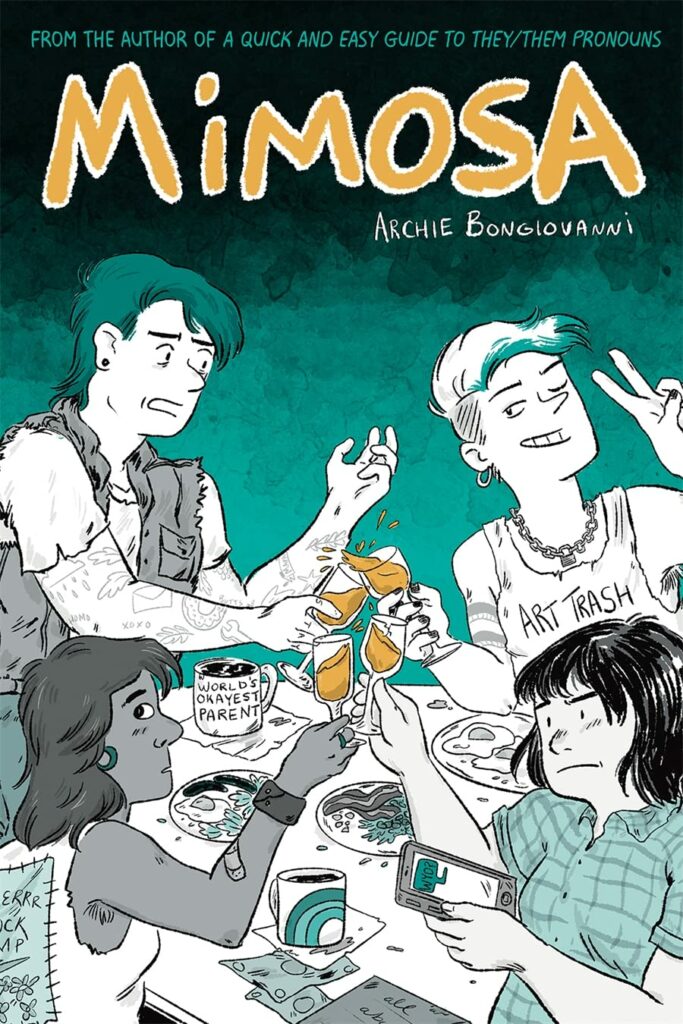
As a creative, who or what would you say are some of your greatest creative influences and/or sources of inspiration?
Honestly, it’s zine-makes and independent comic creators! I don’t feel influenced by a single creator or author. I get compared a lot to Alison Bechdel (a high compliment I don’t take lightly!) but I didn’t read any of Bechdel’s work until I was already drawing comics. I love seeing what people put out on their own, with their own money. A zine is made from nothing but desire and an energy to create and I love seeing what people come up with.
Growing up, were there any stories in which you felt touched by/ or reflected in? Are there any like that now?
I grew up reading Archie comics but I didn’t really feel reflected in them. I liked that they were funny and had regular kids featured in them. I couldn’t get into superhero comics at all despite trying. I discovered manga as a high school student and fell in love with the way the comics focused on emotions, feelings and growing up.
I really connected with the book My Body Is Yours. It’s a memoir featuring zines, intense vulnerability and self-exposure, cruising and exploring the different ways to exist in a body.
Besides your work as a creative, what are some things you would want readers to know about you?
While some of my work is for young adults and kids, I as an individual, am not–yet that doesn’t negate my ability to create work or promote work for a YA audience. I have a YA graphic novel I wrote coming out in 2024 that I am very excited by! I have a lot of fun on my instagram and recommend folks follow me there–just note it’s NSFW! I contain multitudes.
What’s a question you haven’t been asked yet but wish you were (and the answer to that question)?
I wish someone would ask me about my love of creepy dolls! I have a small but growing collection of dolls that I believe to be haunted. My newest doll, who I’ve named Veronica, is a three-foot curly-haired self-standing doll that I put right behind my TV. She’s always watching.
What advice would you give to any aspiring creatives out there?
I’m currently working on my next graphic novel, aimed at adults, that I’m really excited about. It takes place in a fictionalized version of my hometown in rural Alaska. I’m also currently looking for comic writing freelance jobs as I recently wrote a graphic novel (mentioned above!) that’ll be out in 2024 and found it to be such a cool experience!
Advice is hard because everyone is trying to do and create different things so I don’t think there is any blanket advice that would work for everyone. For me, it was helpful to re-define what success looks like and really naming what exactly was important to me while working in the industry. Is it a livable wage? Was it accolades? Was it the ability to tell my stories without being censored? Or maybe the most important thing are the relationships I have outside of my creative output so ensuring my work allows me to have the brainspace to engage with my community? Doing this helped me decide where to focus my energy and ensure I wasn’t constantly comparing myself to others. I’m also, because I created my own standards of success, very successful!
Finally, what LGBTQ+ books/comics would you recommend to the readers of Geeks OUT?
I really loved the mix of simplicity and complexity in Woman World by Aminder Dhaliwal. I also loved Stone Fruit by Lee Lai, Gender Queer by Maia Kobabe, and literally every comic Silver Sprocket publishes.

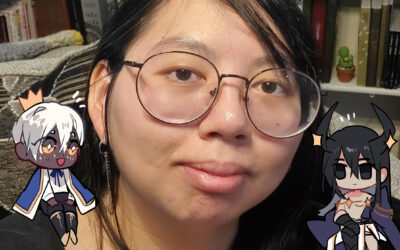
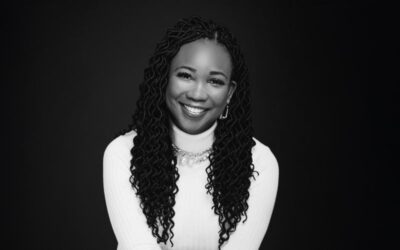
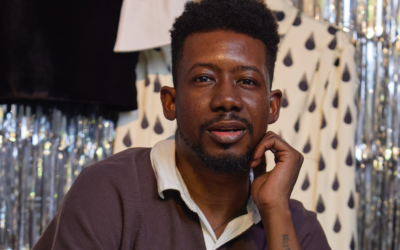
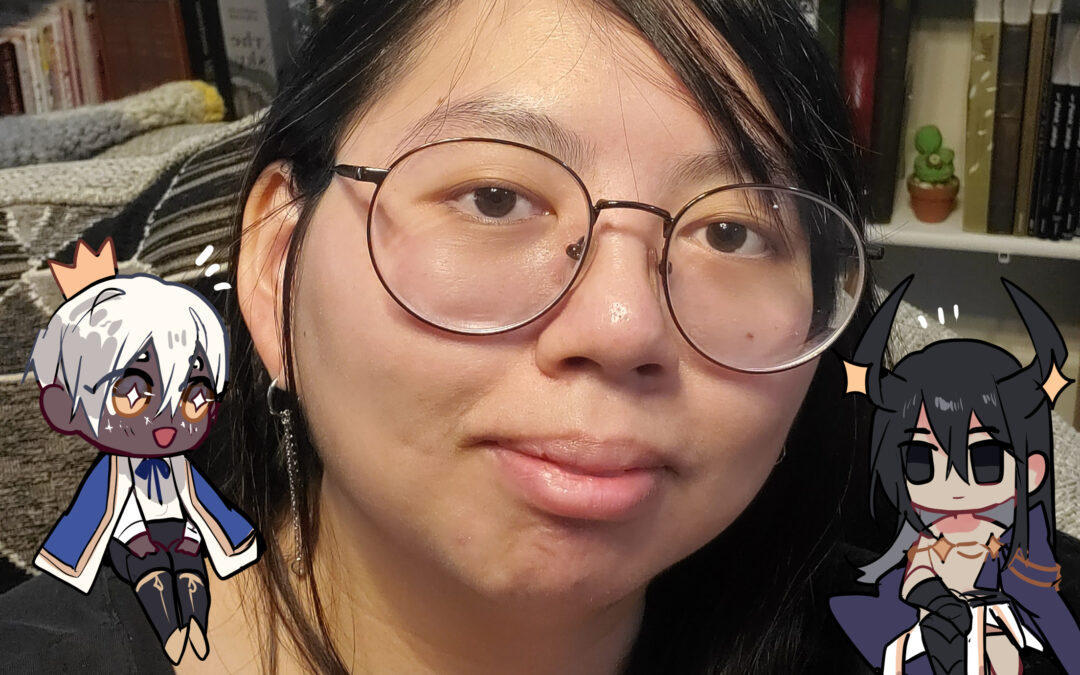
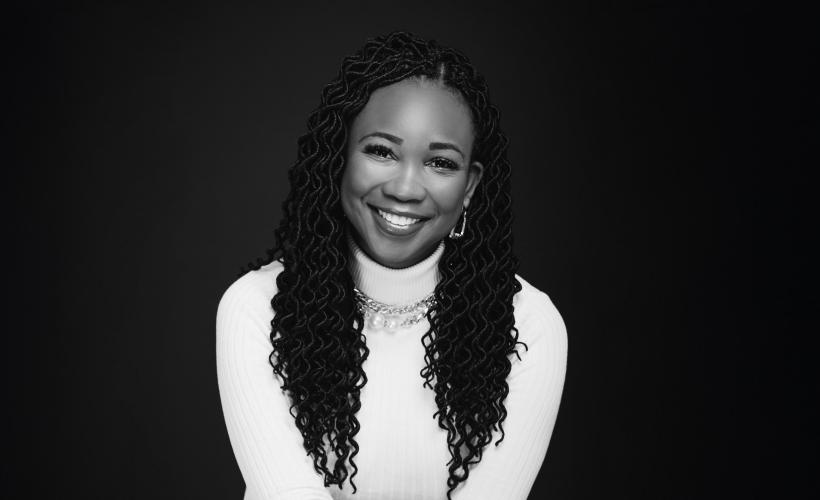
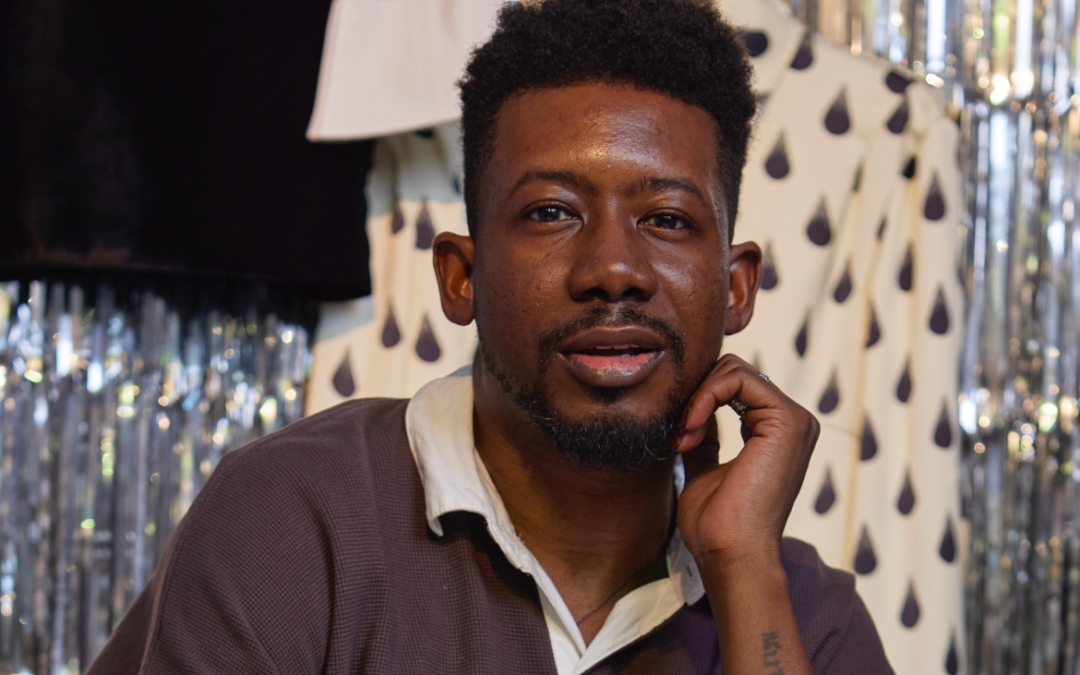
0 Comments